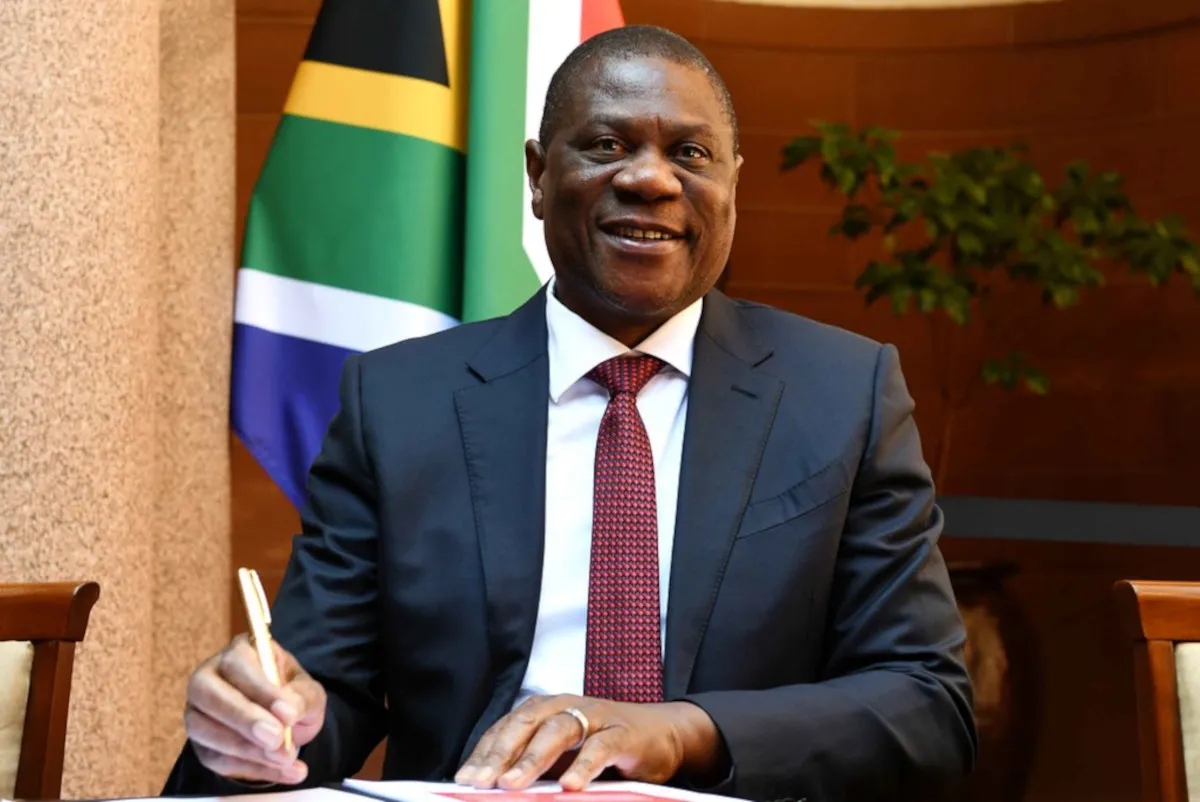
Taxpayers foot R1 million bill for Paul Mashatile’s hotel stay in Japan
Paul Mashatile is facing backlash after it emerged that close to R1 million in taxpayer money was used for hotel accommodation during his trip to Japan.

Deputy President Paul Mashatile faces criticism after revelations showed he spent nearly R1 million in public funds on luxury hotel accommodation during a five-day diplomatic visit to Japan in March 2025.
A recent parliamentary Q&A revealed that Mashatile and his wife, Humile Mashatile, incurred R956 057 in hotel costs alone, part of a broader R2.3 million bill for the Tokyo trip, which aimed to boost trade and cultural relations between South Africa and Japan.
Sparked outrage
The accommodation costs have triggered widespread outrage.
Over the four-night stay, the delegation spent an average of about R239 000 per night—far exceeding the rates at even Japan’s most luxurious hotels.
Parliamentary records did not disclose the name of the hotel the delegation used, and this lack of transparency has intensified backlash from opposition MPs and civil society groups. They argue the spending is excessive and unjustifiable, particularly as many South Africans continue to face economic hardship.
“This kind of wasteful expenditure is unacceptable,” said DA MP Lerato Ngobeni, who posed the original parliamentary question.
“Taxpayers are struggling to make ends meet, while senior officials are living in five-star luxury.”
Paul Mashatile took the March trip just months after being sworn in as deputy president on 3 July 2024.
Since assuming office, he has embarked on multiple international visits to Ireland, the United Kingdom, Zimbabwe, Botswana, and Japan, each drawing increasing scrutiny over escalating travel expenses.
Defended the trip
Mashatile travelled with a delegation that included ministers and deputy ministers from various portfolios, including Sport, Agriculture, Higher Education, and International Relations.
The government defended the trip, claiming it provided strategic value for strengthening bilateral cooperation in trade, education, and science.
However, critics remain unconvinced.
Transparency watchdogs and public finance monitors have called for an audit of the Japan visit and demanded stricter regulations on government travel, pointing to the absence of detailed cost breakdowns and vague justifications.
“This isn’t just about one trip,” said Sipho Mbele, an analyst with the Public Accountability Forum.
“It’s about a pattern of abuse where government elites operate under a different set of rules than ordinary citizens. There’s very little transparency or restraint.”
As pressure mounts, at the time of publishing, Paul Mashatile’s office has remained silent on the matter.
